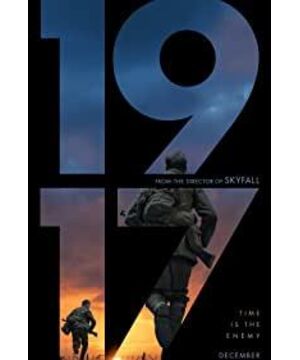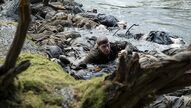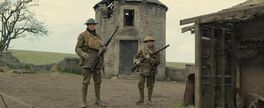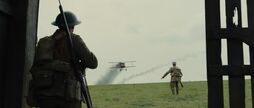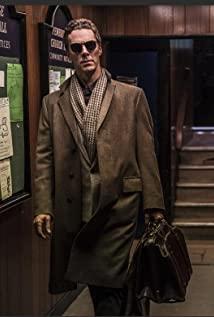Excerpt from: Konoha Feifei | "1917": Death, Hope and Anti-War
"1917" is the work of the famous British director Sam Mendes. I'm used to watching American war movies, such as "Saving Private Ryan", "Black Hawk Down", "The Hurt Locker", "Hacksaw Ridge", etc., and then watching British war movies, I feel more Artistic. This is probably the biggest difference between European films and American films.
"1917" probably tells such a story about ordinary soldiers saving many lives.
Super long shot, immersive experience
"1917" is best known for its super long shot, one-shot style. This is also the style of director Sam Mendes. I have to say, this style, used in the movie, is really good. Although I watched the movie on the computer, I could really experience the immersive tension, excitement, and excitement, giving people a very strong sense of reality and substitution.
After watching the movie for nearly 2 hours, I was completely immersed in it, and I felt unsatisfied after watching it. To give an inappropriate analogy, it is like eating a very delicious meal. Although you are full, you still want to eat two more bites, but you find that the CD is already there.
In addition, the cinematography of the film and the restoration of the war scenes are indispensable. You know, it won the Oscar for Best Cinematography and Best Visual Effects.
death and hope
Death and hope, I think, is one of the themes explored in this film. They, like the front and back of a piece of paper, can never appear at the same time.
tree represents hope
There are several things about the death and hope of trees;
The first place: Blake and Schofield, when passing a cherry orchard, all the cherry trees were cut down by the Germans. In fact, there was no need for the Germans to cut down these cherry trees, because these trees could not bring any real material supplement to the enemy. If they really wanted to enforce a scorched earth policy, the cans of dog meat, cows and milk left in the trenches should all be cleaned up, but they didn't. The reason why all the cherry trees in these cherry orchards are cut down here is actually a symbol of the Germans wanting to cut down the tree that symbolizes hope. When the tree dies, there is no hope. However, Blake told Schofield that the branches of these cherry trees, which were cut off and planted in the soil, would grow more cherry trees in the coming year. Hope and the future are always there and will always be there.
Second place: Schofield was stopped by a fallen tree barricade when he was riding in the military vehicle of the brother team. The driver was mired in the quagmire due to the detour, and the crowd pushed the general car out. The dead tree blocks the way forward. But there is always a way to beat it. It also heralds an unstoppable future victory.
The third place: At the end of the movie, after Schofield found Blake's brother, he walked under a big tree in the wheat field, leaned against the tree, and opened photos of his family, as well as his girlfriend's (or fiancee's) The photo, with the words "come back to me" on the back, then Schofield closes his eyes and the movie ends. Combined with the historical background at that time, we know that the war ended in the second year. Perhaps, the second year Schofield has returned to his hometown, come back to his girl. The ending gives hope and a future.
baby represents hope
In the war-torn town of Aix, Schofield meets a French woman and a homeless baby taken in by the woman. Seeing that the baby was going to starve to death, Schofield gave all the milk he had obtained before to the baby. Although there is not much milk, the baby may not drink it for a few days. But the hope is still there, and the future is still there, isn't it?
Blake's Death and the Army's Hope
Blake was very motivated when he first got the assignment from the Headquarters general, because he wanted to save his brother. And Schofield was reluctant, as if forced to accept the task.
After Blake was killed by a German pilot in the middle, I once thought Schofield would give up (although I know he definitely wouldn't), because Blake was more willing to complete the mission than Schofield, he was the army saved of hope. Now that hope is killed, after some psychological activities, Schofield inherited Blake's hope, and his willingness to complete the task is also very strong. Only later, the army was rescued.
A good war movie theme must be anti-war
Anti-war is another theme of 1917.
Because of the long shot of this film, the immersive experience is very strong, so the perception of this theme is also very strong. Just to name a few examples:
First example: rescue of German fighter pilots. Blake was stabbed to death by the enemy with a dagger because he wanted to give the enemy some water to drink. If it was a time of peace, what would be the outcome of this kind of act of kindness? As an example of dealing with the enemy, there is also the German soldier Baumer who was killed by Schofield in Exeter. It was also because of Schofield's momentary kindness that the enemy was almost killed by the enemy. There is nothing wrong with being kind, but what is wrong is war.
The second example: When the two soldiers were just walking out of the trenches to carry out their mission, they saw the corpse of a German soldier on the battlefield. The body was gnawed by rats, and rats kept running out of their stomachs. And beside him, a head was clearly visible. This scene is very blank. Even the soldiers were frightened by these scenes. You can see the brutality of the war.
Third example: a small detail. It was Schofield who was on the way in the military vehicle, and during the chat among the soldiers, one soldier asked, "Don't they (German soldiers) don't want to go home?" Another soldier replied, "They hate their mothers and wives, and Germany is not good. place". Who hates their mother and wife? Who wouldn't want to go back to their hometown? It's just because of the war that they can't go back.
War is terrible. A good war movie must be anti-war. Just like the ancient poem wrote, "Poor Wuding River Bone, but also a person in a spring boudoir's dream". Yes, soldiers who died abroad are also the sons of their mothers, the husbands of their wives, and the fathers of their children. It's the breakdown of thousands of whole families.
Also in the movie, "I'm only going over home" sings in the song "I Am a Poor Wayfaring Stranger" in the woods .
May the world be at peace and without war.
View more about 1917 reviews


